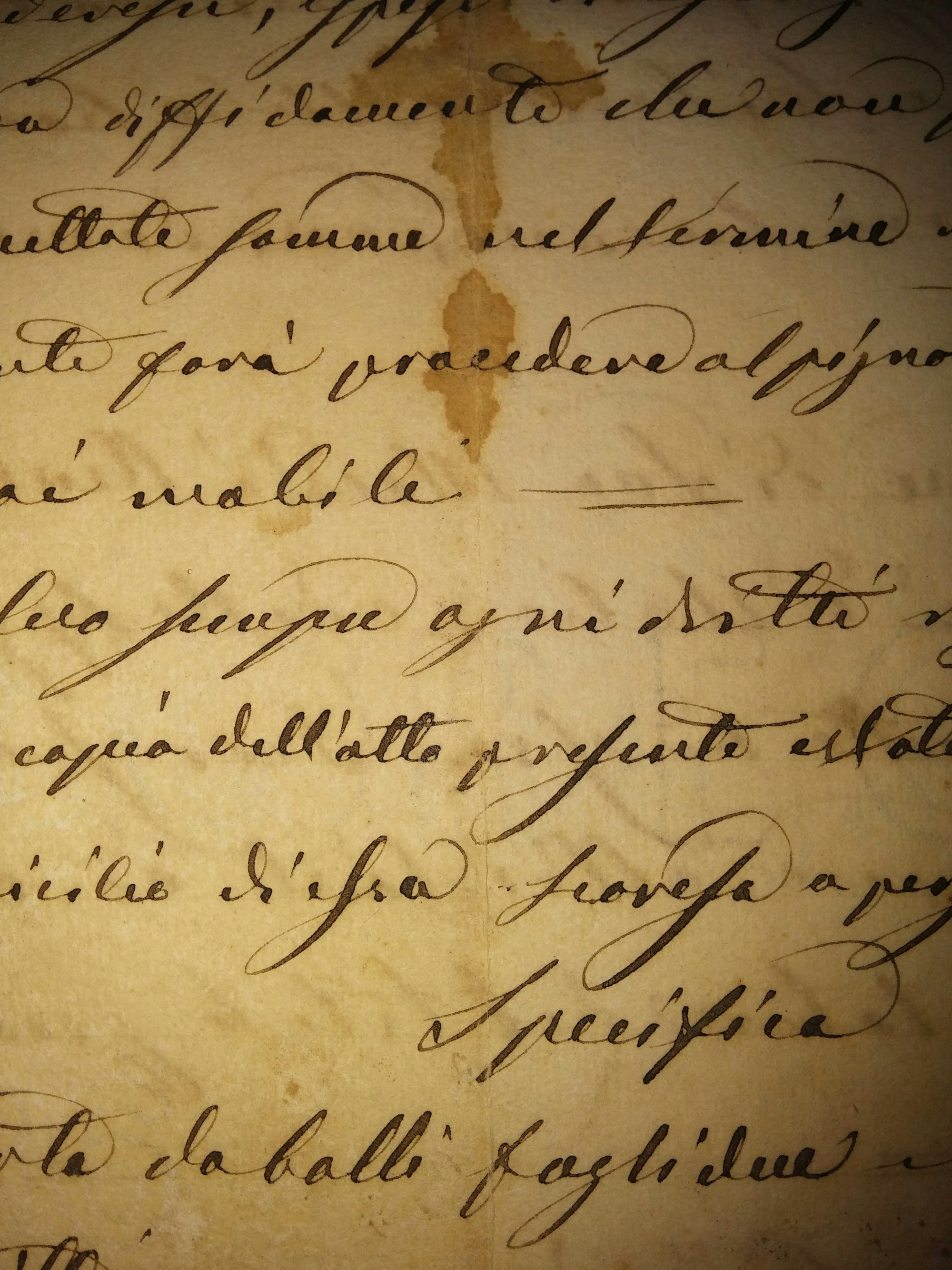Read the Following Poem by Emily Dickinson This Is My Letter to the World That Never Wrote to Me
Emily Dickinson, "This is my letter to the World" (J 441, F 519)
Vendler allows this lyric to resonate with moral force, and I have no doubt some will commit this poem to memory because of her estimation.

Surprisingly, at that place isn't much commentary on this fiddling, famous, and frequently-assigned poem. That's a shame. It lends itself to rich, vigorous give-and-take. I wonder: nether what circumstances would I write a "letter to the World?" Why would the Earth want to read my alphabetic character? Why is everyone telling me no 1 is going to read my stupid letter?
This is my letter to the World (J 441, F 519) Emily Dickinson This is my letter of the alphabet to the World That never wrote to Me — The uncomplicated News that Nature told — With tender Majesty Her Message is committed To Hands I cannot see — For love of Her — Sweetness — countrymen — Estimate tenderly — of Me
Helen Vendler has a thoughtful, comprehensive reading of this poem. For Vendler, Dickinson makes herself no less than an "Evangelist" (237). She writes an epistle to proclaim the News told past a superhuman force kindly only regally. The content of that News can be seen by contrast with male prophets, law's terrible majesty, and a complex narrative of divine redemption (238). She's, well, a she. "Tender Majesty" calls into question the harshness of the moral order. "Simple News" is pretty easy to understand: this is my alphabetic character.
The goal is to advance a new commandment: "the tenderness of feminine 'Majesty' is [to be] matched by the tenderness of Nature's subjects" (238).
I'chiliad awed by what close-reading can reach. Vendler allows this lyric to resonate with moral force, and I take no doubt some will commit this poem to retention because of her interpretation.
I nonetheless accept questions.
"This is my letter to the World / That never wrote to Me."
I have to stop there. "That never wrote to Me." Never addressed me or saw me as an individual. Created an atmosphere filled with fail. Without others who care about what we're trying to attain, it's nigh incommunicable to know or actualize oneself.
I have some personal stories. When my skin was rapidly falling autonomously, family unit and friends preferred to pretend they didn't see the trouble. I get this—they didn't hateful to be unkind. But they also gave plenty of moralizing, counterproductive advice. A few told me to "get some other job" at a time I needed powerful anti-allergy drugs to command the swelling around my optics and so I could see. I recovered through a combination of professional advice and sheer luck. It took years to discover the correct help.

It'due south also weird having a PhD, serious intellectual interests, and a lot of people effectually who could care less. I used to think this was but a luxury, but now that I see successful academics and writers, I realize how all-encompassing their back up is. Furthermore, this I know from feel: it is very possible for people to be so ignorant or lack curiosity that they're harmful. If you accept their definition of "good"—and they're not entirely wrong, of course—you lot can end up neglecting what you yourself worked for and represent. They won't run across whatsoever of this, they certainly won't help, and your bodily studies volition feel similar writing messages in a bottle and throwing them into the body of water as opposed to having value for all.
Vendler argues that Dickinson writes to other Americans with a vague thought of a larger audience in mind (237). "This is my letter to the Globe" somewhen resolves into "For beloved of Her — Sweet — countrymen — / Approximate tenderly — of Me." I believe "Earth" and "countrymen" can exist understood more broadly based on what I've written above. The "countrymen" are like a lot of the people I deal with, people who even if they read for themselves, ultimately succumb to the tropes of television. Inexpensive moralizing that looks k because of its presentation and ubiquity. There's a deeper level of conventionality, though, residing in "World." The same World which can accept yous or even give eternal fame volition more than likely ignore you even if there was no television, apocalyptic Christianity, or patriarchy. At the heart of information technology, we serve convention, not the other fashion around.
I do call back Dickinson wants far more than tenderness. But I think Vendler errs in a fashion by holding her to exist like Jesus in issuing a commandment (238). Vendler would probably agree if I said that she'south just putting on the garb, the airs, of Christianity, only I feel like even that doesn't go far plenty.
A related problem is the depth of fail she faces. "Never wrote to Me;" "[Please] Guess tenderly." Nosotros're all too aware that the "countrymen" she leaves her letter with are non "Sweet." This is a vicious patriarchal order, looking for any sign of weakness, discontent, or nonconformity in order to bully. 1 could debate that her pleading language is expected from her. I know from being a brown man in Dallas that in that location are a lot of things on which I cannot directly comment, let alone confront without consequences.

These are twin concerns. How exactly does Dickinson employ organized religion? How does she practise justice to a fell, nearly inconceivable state of affairs? I detect an indirect answer not in the religious imagery, merely the vagueness of "Nature." "Her Message is committed / To Hands I cannot encounter" acquires a crucial place in this reading.
To exist certain, "Nature" is primarily well-nigh Dickinson herself. It spoke to her, giving her News. Something that few, if whatsoever, have realized or acted upon. It non merely sets her against her age, but it speaks access to another realm entirely. One in which reason guides more than tradition, the passions are different, and greater truths can be had. This is not as corny, remote, or idealistic every bit one might think. I, like a lot of you, have stocked shelves while wondering about the existential possibilities of Descartes' cogito or whether Aboriginal Greek ideas about constabulary can exist applied to our guess of politics today. Once more, a lot of the states practice this, and what a difference between this and consummate absorption in the Fox News Extended Universe.
But "Nature" isn't just noesis. It's cognition that speaks to possibilities. This is fabricated abundantly clear in "Her Message is committed / To Hands I cannot see." I recollect near Helen Vendler, one of the greatest literary critics of this time. A veritable titan who has trained generations of literary scholars and has influenced a number of curricula, if not the curriculum, for generations to come. I don't know that someone can have that degree of success and be fully sensitive to what Dickinson is going through in these lines. They feel for me similar the lines where i breaks down. I consider it a big success on Twitter if I get a few likes and retweets and someone says they similar what I wrote. What if I didn't fifty-fifty have that? What if I felt I had to hibernate, that I would be more useful if I were gone? If Dickinson is writing these lines with the feeling I imagine, what a trust in possibility. And what a distressing, cruel earth.
Is the world redeemable? That's actually the question Dickinson is getting at in this letter. Information technology's not the "new commandment" that matters every bit much as the fact it was never obvious in the offset identify.
References
Vendler, Helen. Dickinson: Selected Poems and Commentaries. Cambridge: Harvard, 2010. 237-38.
Source: https://encouragement.ghost.io/dickinson-this-is-my-letter/

0 Response to "Read the Following Poem by Emily Dickinson This Is My Letter to the World That Never Wrote to Me"
Post a Comment